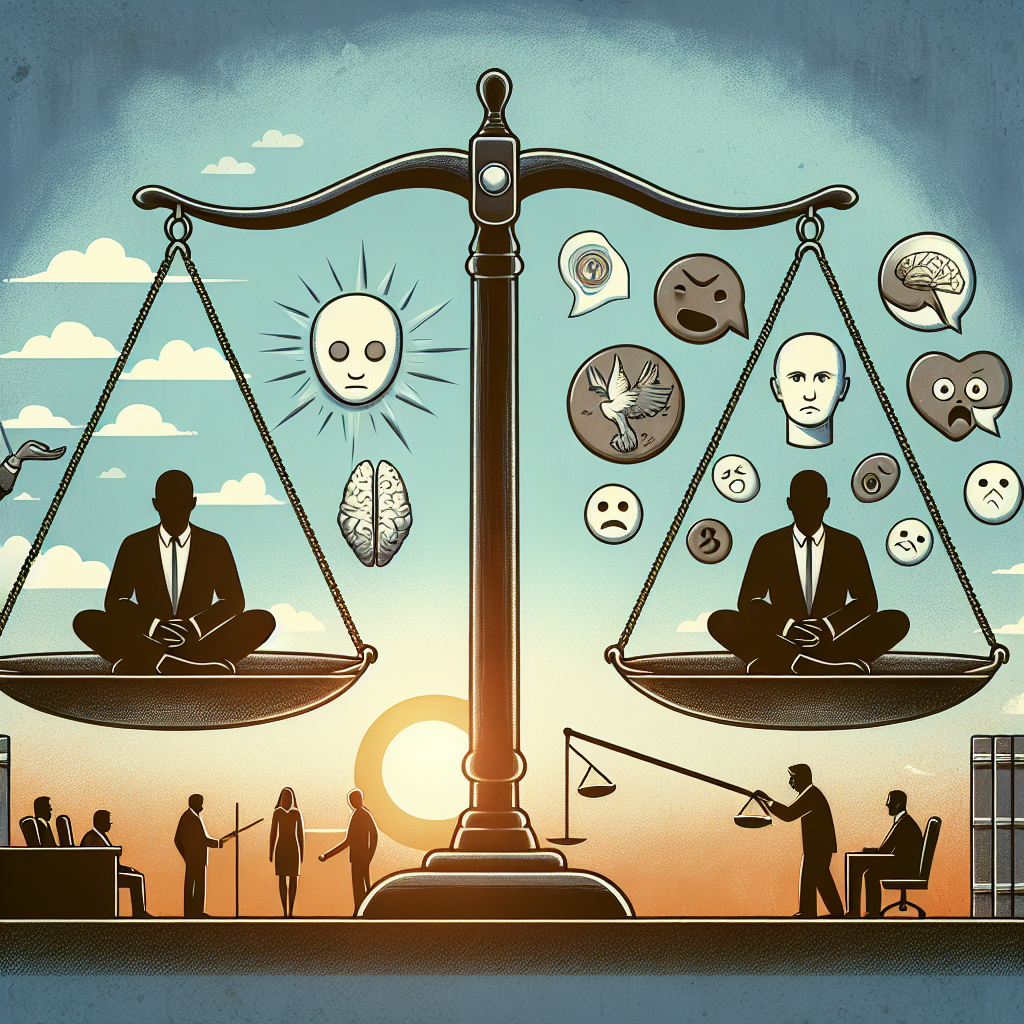Psychological Aspects of Mediation vs. Litigation

Unlocking the Power of Psychological Mediation: Benefits You Need to Know
The Benefits of Psychological Mediation: Exploring Its Impact on Mental Well-Being
Psychological mediation is an alternative dispute resolution process that focuses on resolving conflicts through communication and understanding, rather than legal proceedings. While litigation may be necessary in some cases, the psychological aspect of mediation can provide numerous benefits for individuals involved in a dispute. In this article, we will delve into the various ways in which psychological mediation can positively impact mental well-being, and why it may be a preferable option over traditional litigation.
Understanding the Role of Mediation in Resolving Psychological Conflicts
Mediation involves a trained mediator who acts as a neutral third-party to facilitate communication and help the parties involved in a dispute reach a mutually beneficial resolution. Unlike litigation, mediation focuses on addressing the underlying issues and emotions that fuel the conflict, rather than just determining a winner and a loser. This approach allows for a more comprehensive and holistic resolution, which can have a significant impact on the mental well-being of the parties involved.
The Science Behind Mediation: How It Affects Brain Function and Emotional Regulation
Research has shown that mediation can have a positive impact on various aspects of brain function, including emotion regulation, decision-making, and communication skills. When individuals are engaged in a dispute, their fight or flight response is activated, leading to increased stress and emotional reactivity. However, mediation allows for a safe and controlled environment for individuals to express their emotions and work towards a resolution. This process can help regulate emotions, leading to better decision-making and improved communication skills.
Enhancing Communication and Conflict Resolution Skills through Psychological Mediation
Communication and conflict resolution skills are essential for navigating both personal and professional relationships. However, these skills are often overlooked and not taught formally in traditional education systems. Through mediation, individuals have the opportunity to learn and practice effective communication and conflict resolution techniques. This not only helps in resolving the immediate dispute but also has long-term benefits for all aspects of life.
Rebuilding Trust and Strengthening Relationships through Mediation
Trust is an essential element in any relationship, and it can be significantly impacted by conflicts. In litigation, the adversarial nature of the process can further damage trust between the parties involved. However, mediation focuses on finding common ground and understanding each other’s perspectives, which can help rebuild trust and strengthen relationships. This is especially beneficial in cases where the parties involved have a continuing relationship, such as co-parenting or business partnerships.
The Power of Self-Reflection: How Mediation Helps in Self-Discovery and Personal Growth
Mediation provides a structured and safe space for individuals to reflect on their actions, thoughts, and emotions. Through the process, they may gain insights into their own biases, triggers, and communication patterns. This self-discovery can lead to personal growth and a better understanding of oneself. By addressing and resolving conflicts, individuals can also learn important lessons and develop skills that can be applied in their personal and professional lives.
Overcoming Trauma and Anxiety: Using Mediation to Heal Emotional Wounds
Conflict can often bring up past traumas and trigger anxiety in individuals. Litigation can further exacerbate these emotions, leading to a negative impact on mental health. In contrast, mediation focuses on addressing the underlying emotions and providing a safe space for individuals to express and process them. This process can help individuals heal from past traumas and reduce anxiety related to the conflict at hand.
Navigating Life Transitions with Ease: The Role of Mediation in Coping with Change
Life is full of transitions, and some of them may lead to conflicts. These transitions can include divorce, job changes, or family dynamics. Mediation can be a helpful tool in navigating these transitions and managing any conflicts that may arise. By addressing the underlying emotions and working towards a mutually beneficial resolution, mediation can help individuals cope with change and reduce the stress and anxiety that often comes with it.
Unlocking Inner Strength: The Empowering Effects of Psychological Mediation
Mediation empowers individuals by giving them a voice and an active role in finding a resolution. This can be especially impactful for individuals who may feel disempowered in the face of a legal dispute. By actively participating and making decisions, individuals can tap into their inner strength and feel a sense of control over the situation. This can have a positive impact on their mental well-being and self-confidence.
The Future of Mental Health: How Mediation is Shaping a More Positive Society
The traditional approach to resolving conflicts through litigation is often based on the idea of winning and losing. This can result in a negative impact on mental health for both parties involved. However, as society becomes more aware of the importance of mental health, there has been a shift towards alternative dispute resolution methods like mediation. With its focus on communication, understanding, and mutual benefit, mediation is shaping a more positive and mentally healthy society.
Conclusion
Psychological mediation offers numerous benefits for mental well-being compared to traditional litigation. By addressing the underlying emotions and focusing on communication and understanding, mediation can lead to more comprehensive and long-lasting resolutions. As society continues to prioritize mental health, mediation may become the preferred method for resolving conflicts, ultimately creating a more positive and harmonious society.



